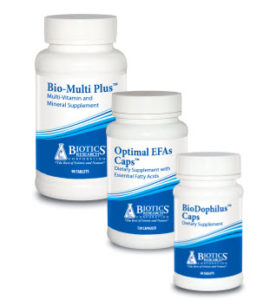Why supplement your diet?
In the early 1930s, a dentist named Weston A. Price (1870-1948) traveled the globe to study the health of populations untouched by western civilization. Price studied groups including Swiss, Gaelic from the Outer Hebrides, native peoples of North and South America, Melanesian and Polynesian South Sea Islanders, African tribes, Australian Aborigines and New Zealand Maori. In all of these groups Dr. Price found beautiful decay-free straight teeth, healthy physiques, and people highly resistant to disease. Dr. Price analyzed their foods and found in comparison to the American diet of the 1930s they provided at least four times the water-soluble vitamins, calcium and other minerals, and at least TEN times the fat-soluble vitamins (A,D,E,K). 1
Since the early 1930’s the nutrient content of the American diet has continued to decline. Increasing use of chemical fertilizers and increasing levels of food processing are further destroying the nutrient content of our foods. As an example, the USDA has reported the following change in nutrient content;
| FOOD | NUTRIENT | 1963 | 1992 | % CHANGE |
| Apple | Iron | 0.3mg | 0.18mg | -40% |
| Carrot | Magnesium | 23mg | 15mg | -35% |
| Broccoli | Calcium | 103mg | 48mg | -53% |
| Ground beef | Vitamin A | 40IU | 0IU | -100% |
| Chicken | Vitamin A | 150IU | 45IU | -70% |
As part of a properly-prepared, nutrient-dense, whole foods diet, I encourage all my clients to eat locally grown, in-season, organic vegetables and fruits, to buy or raise pastured, free ranging, organic animal products, to select only wild-caught fish and seafood, and to buy raw, organic, and minimally processed dairy products. This represents a major lifestyle change for 99.9% of the people I meet. While they work on this transition I recommend a basic, affordable supplement plan to provide the missing vital nutrients their bodies need including a multi-vitamin, fish oil, and a probiotic.
In addition, during Nutritional Therapy consultations I use evaluative techniques to identify further specific nutrient deficiencies and test the client’s response to particular supplement combinations. This allows me to gauge the effectiveness of a supplement before making a recommendation and to determine when the supplement is no longer required.
Which brand of supplements should I use?
Most people do not give much thought to the purchase of their nutritional supplements, assuming that they are basically the same. However, the quality of dietary supplements varies tremendously from manufacturer to manufacturer. Unfortunately, many products are not what they are represented to be.
Recently the New York State Attorney General’s office accused four major retailers of selling fraudulent and potentially dangerous herbal supplements and demanded that they remove the products from their shelves. The authorities said they had conducted tests on top-selling store brands of herbal supplements at four national retailers (GNC, Target, Walgreens and Walmart) and found that, on average, four out of five products did not contain any of the herbs on their labels. The tests showed that pills labeled medicinal herbs often contained little more than cheap fillers like powdered rice, asparagus and houseplants, and in some cases substances that could be dangerous to those with allergies.
I choose to offer my clients a professional line of supplements by Biotics Research, a US company, for the following reasons;
- Their primary market is products sold through health care providers, not retail sales
- Their products are made in the USA at their facility in Rosenburg, TX
- All incoming materials are tested for content and quality
- Raw materials are tested for bacteria, yeast, mold, heavy metals, hormones, pesticides, and residual solvents.
- They test all product during the manufacturing process and prior to shipment
- They test and verify potency
- Their products are 100% gluten-free
- With over 260 formulations in their product-line, I can offer my clients targeted solutions
- They work
Where can I get Biotics supplements?
We carry the most commonly used supplements in our office and also make them available on our website. While I believe a basic, affordable supplement plan including a multi-vitamin, fish oil, and a probiotic is safe for almost everyone, more specific supplements should be determined through a Nutritional Therapy consultation and are made available on our website only for existing clients who benefit from the convenience of reordering online.
What if you don’t believe in taking supplements?
At times I encounter clients who do not “believe in” taking supplements. Often this is based on a disbelief in their necessity. The prior paragraphs have explained their necessity in a broad sense. For a more specific example I would use the instance of a deficiency in the mineral zinc. As part of a Nutritional Therapy consultation I routinely test my clients for a deficiency of zinc. A client who is found deficient could address the deficiency with food by consuming ten or more raw oysters a day for 30 to 60 days or they could take one zinc tablet per day for the same time period. Clearly, supplements have their place.
We carry the complete Biotics Research Supplement line. Only clients who complete a Nutritional Therapy consultation are eligible to purchase recommended Biotics Research products, such as Beta Plus directly from the Healing Center of Maine.
1 http://www.westonaprice.org/health-topics/abcs-of-nutrition/principles-of-healthy-diets-2/
- Dehydrated Broth – Making It Easy to Drink Broth Every Day! - March 11, 2017
- Lose 10 lbs DURING the Holidays - November 19, 2016
- Finding Good Oils - February 7, 2016



No comments yet.